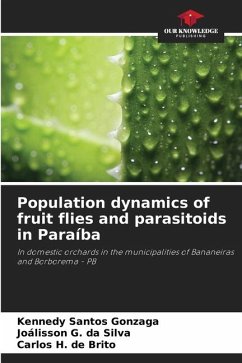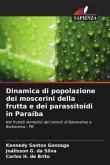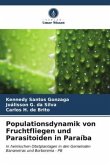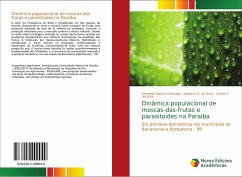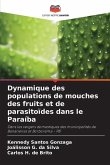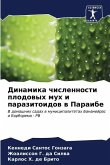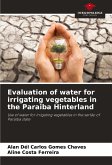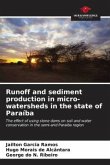The fruit-growing sector in Brazil is considered one of the largest in the world, standing out as the third largest fruit producer, with an estimated production of more than 42 million tons. However, the production destined for the foreign market is very low, due to the low level of technology used in the cultivation of fruit trees, coupled with phytosanitary problems that have a direct impact on the quality of the fruit. Infestation by fruit flies (Diptera: Tephritidae) is considered the biggest obstacle to the production, marketing and export of fruit trees, and is one of the country's biggest pests. The aim of this work was to quantitatively assess the biodiversity of Tephritidae and the occurrence of parasitoids associated with domestic orchards in the municipalities of Bananeiras and Borborema - PB.
Bitte wählen Sie Ihr Anliegen aus.
Rechnungen
Retourenschein anfordern
Bestellstatus
Storno

